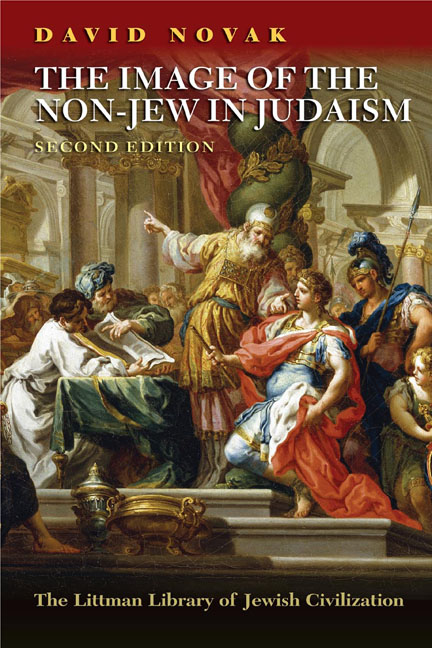Book contents
- Frontmatter
- Dedication
- Preface
- Acknowledgments
- Contents
- Chapter Summaries
- 1 The Origins of the Noahide Laws
- 2 The Law of Adjudication
- 3 The Law of Blasphemy
- 4 The Law of Idolatry
- 5 The Law of Homicide
- 6 The Law of Sexual Relations
- 7 The Law of Robbery
- 8 The Law of the Torn Limb
- 9 Aggadic Speculation
- 10 Maimonides’ Theory of Noahide Law
- 11 Albo's Theory of Noahide Law
- 12 Late Medieval Developments
- 13 Moses Mendelssohn and his School
- 14 Hermann Cohen and the Jewish Neo-Kantians
- 15 Conclusion
- Afterword
- List of Abbreviations
- Notes
- Bibliography
- Index
Afterword
- Frontmatter
- Dedication
- Preface
- Acknowledgments
- Contents
- Chapter Summaries
- 1 The Origins of the Noahide Laws
- 2 The Law of Adjudication
- 3 The Law of Blasphemy
- 4 The Law of Idolatry
- 5 The Law of Homicide
- 6 The Law of Sexual Relations
- 7 The Law of Robbery
- 8 The Law of the Torn Limb
- 9 Aggadic Speculation
- 10 Maimonides’ Theory of Noahide Law
- 11 Albo's Theory of Noahide Law
- 12 Late Medieval Developments
- 13 Moses Mendelssohn and his School
- 14 Hermann Cohen and the Jewish Neo-Kantians
- 15 Conclusion
- Afterword
- List of Abbreviations
- Notes
- Bibliography
- Index
Summary
THIS AFTERWORD is designed to fill out some of the larger concerns of The Image of the Non-Jew in Judaism. David Novak's book is a thick historical delineation of the concept on the Noahide from rabbinic times to the twentieth century. This section touches on some of his concerns subsequent to the original publication of the book. In particular, it considers the philosophical underpinnings of natural law and their relationship to Noahide law; the use of natural law thinking in Jewish history, especially since Emancipation; and Novak's analysis of Marvin Fox's and Devora Steinmetz's attitudes towards natural law.
The Relationship of Noahide and Natural Law
Noahide law is related to natural law as a particular manifestation of the universal idea of a rational moral law that all are bound to without the specific obligations of a revealed law. Natural law, properly defined, is the universally applicable—at all times, everywhere and for everyone—and rationally evident standard of human action in the world. It provides an objective basis for a small but essential part of human morality, a basis that is outside any human particularities, ontologically prior to any law-making person or body. Natural law is known through our rational capacity, which all people share. The concern for natural law theorists, at least those writing out of a religious tradition, does not center around matters of ritual and liturgy, which are indubitably particular; rather, they focus on the foundations of inter-human relations and the elementary moral standards that make interaction possible and desirable. Noahide law is, as noted above, the translation of this conception of natural law into a specifically Jewish conceptual vocabulary. It is natural law anchored in a historical tradition. All religions contain some conception, whether fully formulated or not, of laws that include all of humanity. That is, there are moral expectations of other people, not merely one's own community. Concern for the moral life of one's community alone is tribalism, and Noahide law acts as an internal philosophical structure to avoid such an ethically disastrous outcome; it is a danger for all religious groups. These moral expectations have shaped Judaism's approach to other cultures, establishing criteria, a sort of bright-line test, to determine whether Jews can live and thrive in a particular non-Jewish environment.
- Type
- Chapter
- Information
- The Image of the Non-Jew in JudaismThe Idea of Noahide Law, pp. 231 - 240Publisher: Liverpool University PressPrint publication year: 2011

